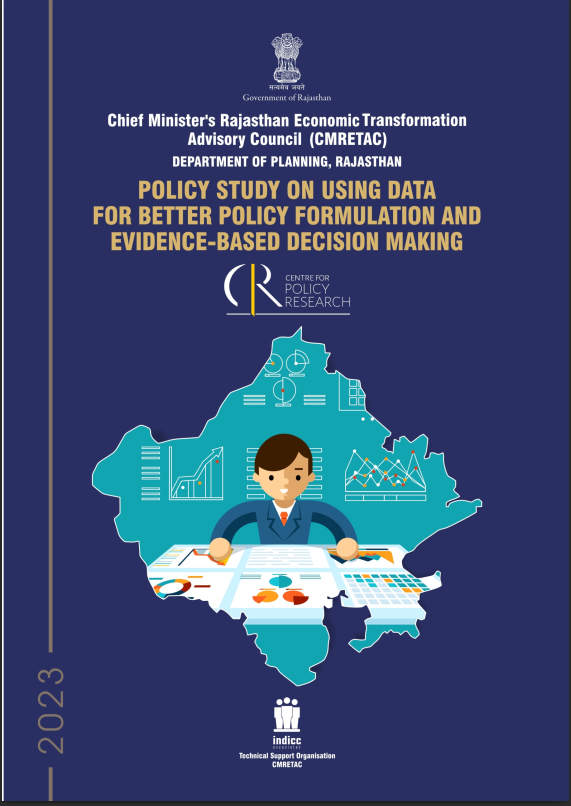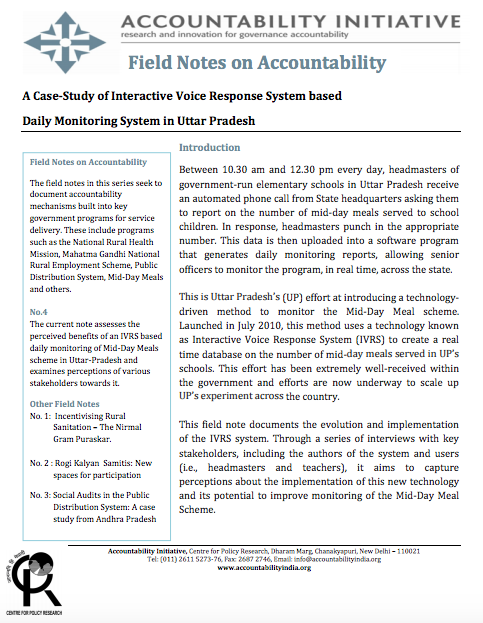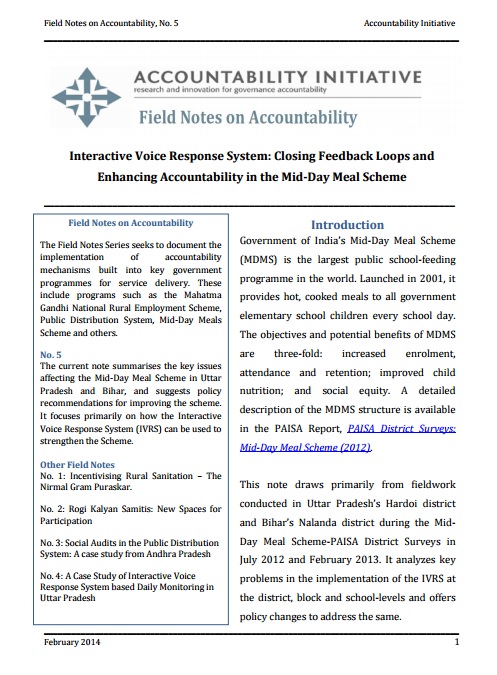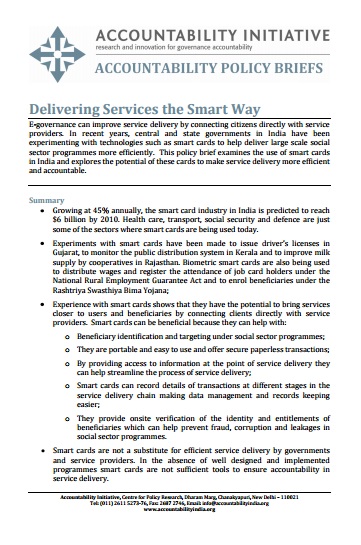
Welfare governance in sectors such as education, health and Panchayati Raj involve a comprehensive exercise of collecting and using data in innovative ways. The use of data can enable making decisions based on evidence (what is referred to as ‘evidence-based decision making’) rather than biases and assumptions. For this, an effective data governance framework is required that can enable setting standards for collecting data, sharing data across departments and encouraging a data-based comprehension of policy challenges.
In 2023, the Accountability Initiative was commissioned by the Chief Minister’s Rajasthan Economic Transformation Advisory Council
(CMRETAC) to undertake a study to recommend suggestions on how to strengthen data systems and enable the state for more effective evidence-based decision-making.
In this report, we assess three sectors of education, health and Panchayati Raj to unpack how data is collected, its usability, use cases of data and how data can feed into policy improvement. On conducting in-depth interviews and focused group discussions with functionaries across all tiers of governance in these three departments, we identified that each sector is a different stage of adoption of evidence-based decision making. For example, the education sector uses a unified Shala Darpan portal for school management and generation of report cards while health uses over – applications for similar management practices. Both sectors along
with Panchayati Raj required stronger capacities at the frontline to collect and use the data. Publication of anonymised data in the public domain (as open data) remains limited. Large governing principles such as a clear identification of what data is required at which stage in the policy cycle was missing.

In the 15 years that have gone by, India has seen a significant transition in the social sector, and lived through a pandemic. At the Accountability Initiative, Centre for Policy Research, we have tracked the provision of welfare services and entitlements since 2008, in-step with the country’s evolution over these years. The year 2023 marks a moment to pause and reflect for us as we celebrate our 15th anniversary, and the Centre for Policy Research reaches its milestone of 50 years.
But, aside from our legacy of evidence-based knowledge sharing, this reflection is important in one more way. In 2024, India will choose a new government. A lookback on welfare spending and outcomes is an essential first step to understanding future priorities and pathways to development.
Drawing from previous Union Budgets, this Special Brief will dive into six major aspects. Firstly, reviewing the sources of funding available with the government. Secondly, analysing trends in expenditures including social sector allocations for key ministries and schemes. Thirdly, the devolution of funds to states who are primary spenders on welfare services. Fourthly, unpacking social sector schemes over the years. Fifthly, analysing select outputs and outcomes over time. Lastly, we offer our own experience by providing a snapshot of the changes in government Management Information Systems which are critical to monitoring welfare schemes, among other aspects.
For the purpose of this Special Brief, we are covering the period from 2009-2023. Actual Government of India (GoI) expenditures have been used till Financial Year (FY) 2020-21. For FY 2021-22, figures are Revised Estimates (REs) and Budget Estimates (BEs) for FY 2022-23.

The National Programme of Mid-Day Meals (MDM) in School scheme is Government of India’s (GoI’s) flagship school-based feeding programme aimed at improving the nutritional status of students and promoting the universalisation of elementary education. Against the backdrop of the COVID-19 pandemic, this brief uses government data to analyse:
■ Past trends in allocations, releases, and expenditures;
■ Provisioning of MDM during the pandemic including additional funding during the summer months;
■ Timing of GoI releases, with a focus on key components; and
■ Coverage.

The field notes series seeks to document the implementation of accountability mechanisms built into key government programs for service delivery. Between 10.30 am and 12.30 pm every day, headmasters of government-run elementary schools in Uttar Pradesh receive an automated phone call from state headquarters asking them to report on the number of mid-day meals served to school children. In response, headmasters punch in the appropriate number. This data is then uploaded into a software program that generates daily monitoring reports, allowing senior officers to monitor the program, in real time, across the state
This is Uttar Pradesh’s (UP) effort at introducing a technology-driven method to monitor the Mid-Day Meal scheme. Launched in July 2010, this method uses a technology known as Interactive Voice Response System (IVRS) to create a real time database on the number of mid-day meals served in UP’s schools. The current note assesses the perceived benefits of an IVRS based daily monitoring of Mid-Day Meals scheme in Uttar Pradesh and examines perceptions of various stakeholders towards it










